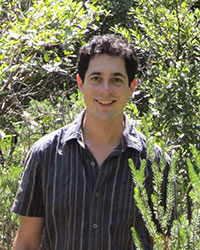Dr. of Political Science
submitted 2012
 It turns out that Stewart Prest was studying politics all along; he just didn't realize it at the time.
It turns out that Stewart Prest was studying politics all along; he just didn't realize it at the time.
Graduating from Augustana in 2000 with a B.Sc. in physics and mathematics, and the following year with a B.A. in history and philosophy, Stewart is now in his fourth year of a Ph.D. in political science at the University of British Columbia.
"It's certainly not what I expected at the time, though to be honest I'm not sure what I expected then, either," Stewart laughs. "I just wanted to try out a bunch of different things during university, and Augustana was the perfect place to do that."
It turns out that everything - the philosophy, the history, the math and physics, even a year involved in student politics - has been important in his PhD studies.
"A lot of political research now involves quantitative models and statistical methods, so the B.Sc. really comes in handy. On the arts side of the equation, the first political scientists were actually philosophers, and the first scholars of international relations - my area of specialization - were actually diplomatic historians.
"So, while I wasn't trying to do anything like that at the time, I ended up with a tremendous foundation for the work I'm doing today."
When asked about his own research, Stewart says, "I'm focusing on how countries like Bolivia and Tanzania manage to avoid the violence of civil war that many neighbouring countries have experienced.
"For instance, the political struggles in Bolivia have been really intense at times in the country's history, but its people have still avoided the so-called 'conflict trap' that so many other states have fallen into in the last half-century.
"So I'm trying to learn something about how Bolivians have managed those political conflicts without recourse to war. If I'm successful, I might be able to understand a little bit more about how civil wars can be prevented or resolved elsewhere in the world."
That kind of practical knowledge is important to Stewart. "The goal for me is to do research that is both methodologically and theoretically sound, that has the potential to help people meet their own challenges on their own terms."
Developing new ways to think about old problems. It's a lot like what Stewart learned to do at Augustana, so perhaps it's only natural that he'd want to help others to the same.